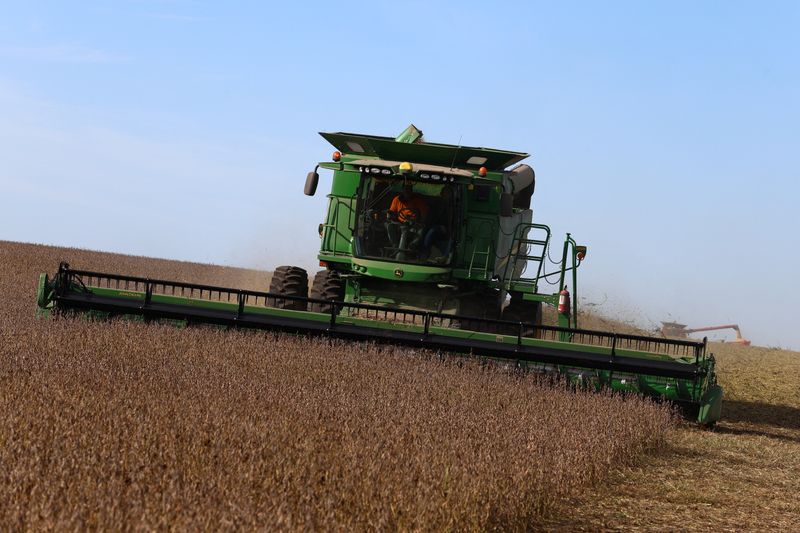Trump trade war fallout hits Argentine soy crushers despite export boom
By Maximilian Heath
BUENOS AIRES (Reuters) -U.S. President Donald Trump‘s trade war with China has reverberated in Argentina, denting the country’s massive soy crushing industry even though overall soybean sales hit a six-year high.
Soaring exports of raw beans to China from the South American country have slowed supply to local processors.
The paradox of a booming export market causing domestic pain has industry leaders worried. Idle capacity at Argentina’s powerful crushing facilities, which process soybeans into meal and oil for export, rose to 31% in July and has “widened” since, according to the CIARA-CEC grain exporters and processors chamber.
“Frankly, as an oilseed industry, we are concerned. This means fewer Argentine jobs and lower export value,” said Gustavo Idigoras, president of CIARA-CEC. “This trade war has not brought benefits to Argentina; it has brought harm.”
He added that the conflict has also created a soybean surplus in the U.S., allowing U.S. soymeal to “aggressively” compete with Argentina’s for customers in Southeast Asia.
BITTERSWEET BOOM
Trump’s trade war has forced Beijing to find alternatives to U.S. soybeans, and it has turned to Argentina and Brazil.
Exports of unprocessed soybeans from the 2024/25 harvest have surged to 8.81 million metric tons, a six-year record driven by strong Chinese demand, according to official data. Processors are feeling the pain.
“This export boom is being fueled by new demand from China that stems directly from its trade war with the United States,” Idigoras told Reuters.
China, the world’s largest soybean customer, buys raw beans to process in its own industrial complexes.
With nearly a third of Argentina’s 2024/25 harvest still unsold, exporters are on pace to nearly double the 4.7 million metric tons sold last season. But whether that trend continues is uncertain.
“The future of our bean exports will be decided by what happens between China and the United States,” Idigoras explained. “All eyes are on November, when the current trade waiver between them expires.”
(Reporting by Maximilian Heath; Writing by Kylie Madry; Editing by David Gregorio)


